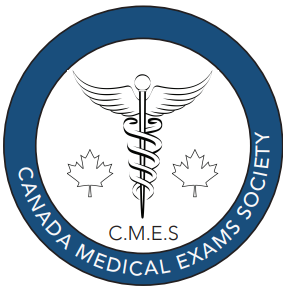Nutrition is an essential aspect of a healthy lifestyle and the importance of getting it right cannot be overstated.
Most of us do know what healthy eating and nutrition diet is all about;
- Less fried food
- Less sugar
- More vegetables
- More fruits
However, when it comes to having good nutrition, too many of us don’t know the full details;
- The benefits of good nutrition
- How to go about achieving it.
“The best six doctors anywhere and no one can deny it are; sunshine, water, rest, air, exercise and above all healthy diet.”
– Wayne Fields
In this article, we will cover the following topics for you to learn about why nutrition matters.
- how good nutrition boost your physical and mental health
- how to acieve good nutrition in your diet
- indicators of nutritious diet
- why and when to consider seeing a nutritionist
- choosing the right nutritionist
The read time is estimated between 6 and 8 minutes.

Good Nutrition Boost your Overall health
Health is the first and most important wealth. To maintain a healthy and well-balanced lifestyle, you must follow a nutritious diet. In addition, you’ve probably heard a lot of people talk about how important it is to eat healthfully. Thus, it would not be wrong to say that “A nutritious and balanced diet is essential for excellent health and nourishment. It helps to guard against chronic illnesses such as heart disease, arthritis, diabetes, and cancer”.
The benefits of having a nutritious diet include;
- weight management
- protection from chronic diseases
- stronger immune system
- protection against onset of aging
- support mental well-being

Achieve Good Nutrition in your Diet
As each food group provides different nutrients and benefits. So eating a balanced diet that includes foods from all of the following four groups is essential. Thus, these are the different food groups that you should keep in mind;
- Fruits and Vegetables
- Protein
- Whole Grains
- Dairy
Registered panel physicians at IME Clinic Inc. are here to help you with more information, get in touch.
Adopt Healthy Eating Habits – Add Nutrition
Apart from eating foods from the above-mentioned food groups, there are three other healthy eating habits to maintain in order to keep your nutrition plan on point.
- Eat Fresh
- Regulate your portion size
- Add healthy seasoning to your food
How About Fat and Sugar
Dietary fat (such as the kind you get from fish and olive oil) is essential for good health as they regulate cholesterol levels in your body while promoting healthy cell function. Monounsaturated, polyunsaturated and saturated fat all play a role in this aspect of good health. On the other hand, the additional fat you often find in fried food should be minimized as they are largely polyunsaturated fat derived from processed vegetable oils such as soybean and rapeseed.
Due to their low threshold for oxidization, overconsumption of polyunsaturated fat can lead to inflammatory conditions and the formation of free radicals. Artificial trans fat is also a strict “no-no”.
Furthermore, sugar should also be limited – while the natural sugars present in fruits and whole grains are healthy, the refined sort you get with cakes and snacks can affect your weight and lead to metabolic diseases if consumed in excess.
Indicators of Nutritious Diet
As maintaining a nutritious eating plan is simple enough; evaluating whether it’s nutritious enough can be straightforward as well. Just look out for five simple enough indicators of whether you are getting enough from your food.
- Body Composition
- Healthy blood pressure and cholesterol levels
- Sleep and energy levels
- Healthy skin and hair
- Healthy digestive system
Consider Seeing a Nutritionist
Although the above five indicators of a nutritious diet may give you a decent idea of how to go about achieving your nutrition goals. Yet, getting the help of a certified nutritionist can help improve your odds of success while avoiding the common pitfalls. One should see a nutritionist for;
- Advice and meal plans
- Adaptation of plans
- Help to stick to the plans
Moreover, apart from diet-related advice, certified nutritionists can also offer emotional support when you are struggling to maintain your diet.

Choosing the Right Nutritionist
If you’ve decided that seeing a nutritionist is a worthy investment, it’s important to consider the different types of nutritionists. Not all nutritionists are equally qualified, so do a background check before you engage one. Some nutritionists are also registered dietitians who can help you create a tailor-made eating plan. Moreover, nutritionists who are not registered dietitians can usually only give advice in specific areas, such as sports nutrition.
We have listed down the following nutritionist in Lower Mainland, BC. for your consideration;
- Vancouver Nutritionist (Vancouver, BC)
- Yaletown Nutrition (Vancouver, BC)
- Adrienne Ngai, Registered Dietitian, Nutritionist, CDE, MSc- Healthy Eating and Weight Loss Coach (Vancouver, BC)
- Impulse Health and Wellness (Surrey, BC)
- The Nutrition Well (Burnaby, BC)
- WestCoast Nutrition (Langley, BC)
- BetterByDesign Nutrition Ltd. – Registered Dietitian (Coquitlam, BC)
- Veritas Wellness (New Westminster, BC)
Furthermore, HealthLink BC’s registered dietitians offer telephone, email and web-based based food and nutrition services to support the information, education and counselling needs of B.C. residents and health professionals.
For more details on Nutrition and Why It Matters, please don’t hesitate to ask your doctor during the Student Medical Exam, or get in touch with us today. We at IME Clinic Inc. are here to help.
Thank you for reading our blog. We have more blogs for you to read, gain information and enjoy.
Feedback and Suggestions for other blog topics are warmly welcome.
